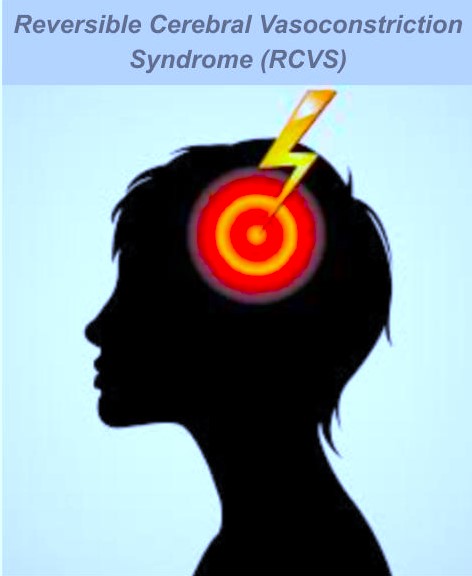
Reversible cerebral vasoconstriction syndrome (RCVS) is a group of conditions characterized by reversible narrowing and dilatation of the cerebral arteries. The age of onset of RCVS is approximately 42 years, affecting adult females more often than males. The presentation of RCVS is usually dramatic, with sudden, excruciating headaches that reach peak intensity within seconds. The “thunderclap headaches” tend to recur over a span of days to weeks. Many patients have triggering factors, such as orgasm or physical exertion, acute stressful or emotional situations, or Valsalva maneuvers (eg, straining, coughing, sneezing). A variety of conditions have been associated with RCVS including exposure to vasoconstrictive drugs and medications, other headache disorders, and recent pregnancy. Patients who present with thunderclap headache must be evaluated as a medical emergency. Supportive care is directed toward managing blood pressure, severe headaches, and other complications such as seizures. The time course of vasoconstriction is variable, but most patients show resolution within three months. The clinical outcome is benign in 90 to 95 percent of patients. Recurrence of an episode of RCVS is rare.
–Alice Wong, NP Reference: https://www.uptodate.com/contents/reversible-cerebral-vasoconstriction-syndrome
